Nevins Street Station Houses A Historic Secret Tunnel With ‘Renegade Art Gallery’
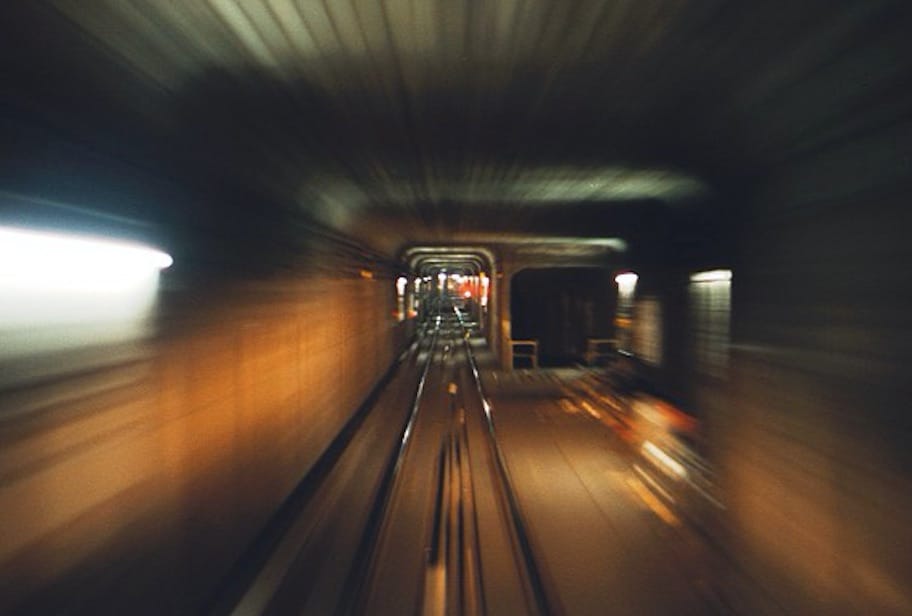
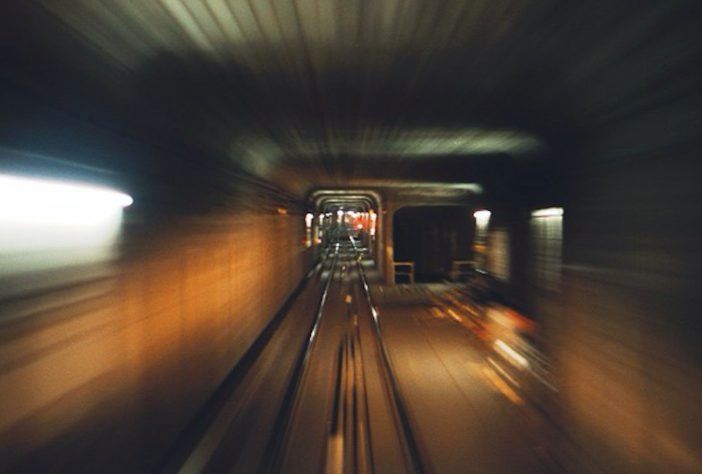
The Nevins Street station is located at the intersection of Nevins, Flatbush Avenue, and Fulton Street and serves the 2 and 4 trains at all times, the 3 train until late night, and the 5 train on weekdays. Sure, it looks like another grimy subway stop, however this unlikely locale has a rich history.
Few people may know there is a hidden level built underneath the station. The IRT Brooklyn/Eastern Parkway Line was initially contracted in 1904 as a two-track line under Fulton Street that would expand into three tracks under Flatbush Avenue, and then end at the LIRR terminal under Atlantic Avenue. However, the Board of Rapid Transit Railroad Commissioners stopped work in April 1905 in order to redesign the tunnels to accommodate future routes.
From your commute, you can catch a glimpse of a tunnel into train antiquity as the ramp to the deserted lower level comes into view after the Hoyt Street station. The lower level has one trackway and platform, along with two connections on each side. No track was ever laid, since the project was abandoned fairly soon after inception.
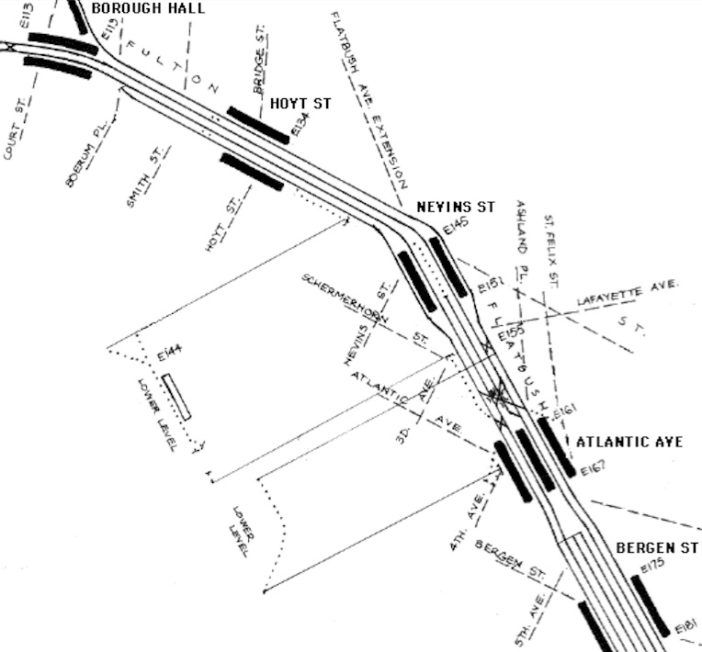
“Work on this section at the beginning of the year [1907] had been in progress two years and nine months. Much of this time, however, was lost on account of the change of plan from a two-track to a four-track structure and work on the latter basis had been in progress only a year and three months. In general, it may be said that the work done prior to the change in plan has operated to retard progress rather than increase it, by reason of the time required to alter the original structure and underpin it where new tracks adjoin it at a lower level. Slow deliveries of steel also continued to hamper the work until early in the present year…”
“In this locality the work is exceptionally difficult on account of the necessity for supporting the two elevated structures [Fulton St El in Fulton St and 5 Ave El in Flatbush Ave] and surface-car tracks while carrying on the construction under cover and excavating below ground-water level for the lower track crossing the spur for the Manhattan bridge connection … at the Nevins St station … good progress is now being made.”
Report of the Board of Rapid Transit Railroad Commissioners for the year ending December 31, 1907
Although the sub-subterranean station used to be viewed through the cross-under, a permanent tile wall now blocks off the lower platform from curious eyes. Station workers can access the hidden tunnel through doors at the north end of each platform and via the cross-under passageway.
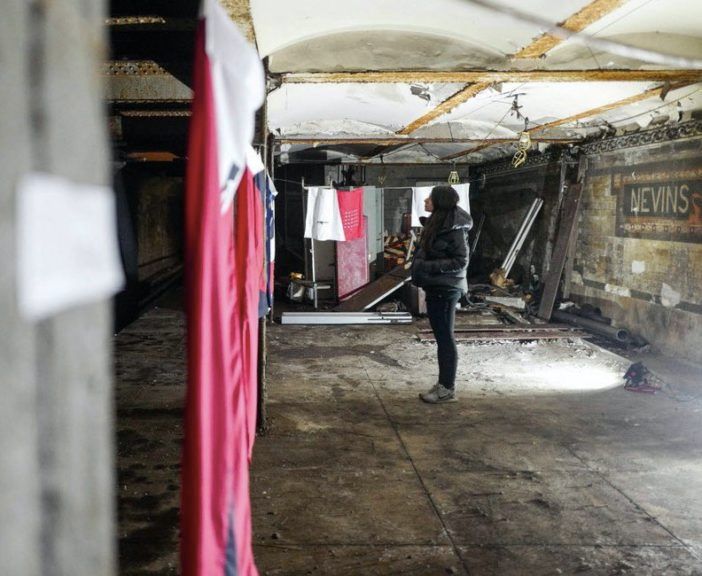
Currently, the only way for a visitor to take a peek is to walk through a dangerous mini-adventure across live subway tracks from the Hoyt Street station. Not many are willing to traverse this, which explains why the lower station is remarkably free of graffiti.
According to untapped cities, an artist/activist found it the perfect location for his guerrilla art installation, highlighting the gun violence in America. The artwork is a series of ten flags embroidered with guns, which each represent one of the ten mass shootings, from Columbine to Sandy Hook.
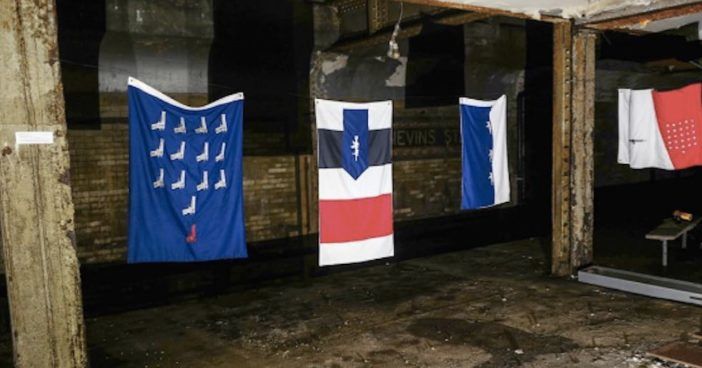
Although not the first artist to choose an abandoned station as an impromptu gallery, this one is not a collaboration, which separates itself from others that had significantly more structure. Artist Phil America explains that “there’s so much unused space in NYC, especially underground … I figured it would be interesting to reclaim some of that space in the name of art.”
While the station was never used, it’s this type of forward planning that allowed the MTA to grow upon the existing framework to expand services as the city grows. On each platform’s track walls, one can find a 1908 name tablet that is highlighted like it’s being displayed in a museum — reminiscent of an era where the city took immense pride in what was built.
Will the hidden platform ever be utilized? Unlikely. This 111-year old piece of history will remain beneath our feet for some time longer, as an abandoned station out of sight and mind, or as a renegade art gallery for the brave and curious.




